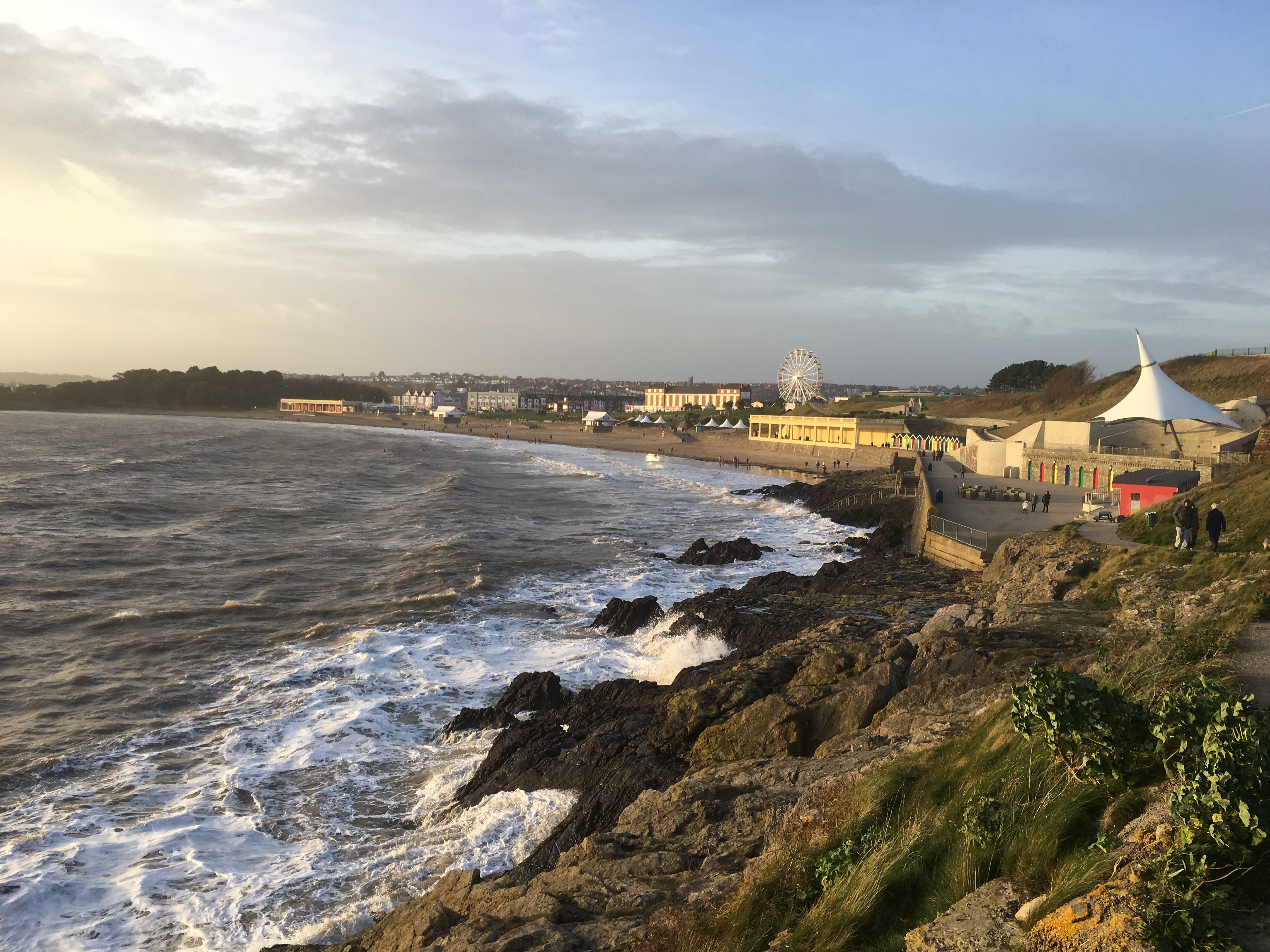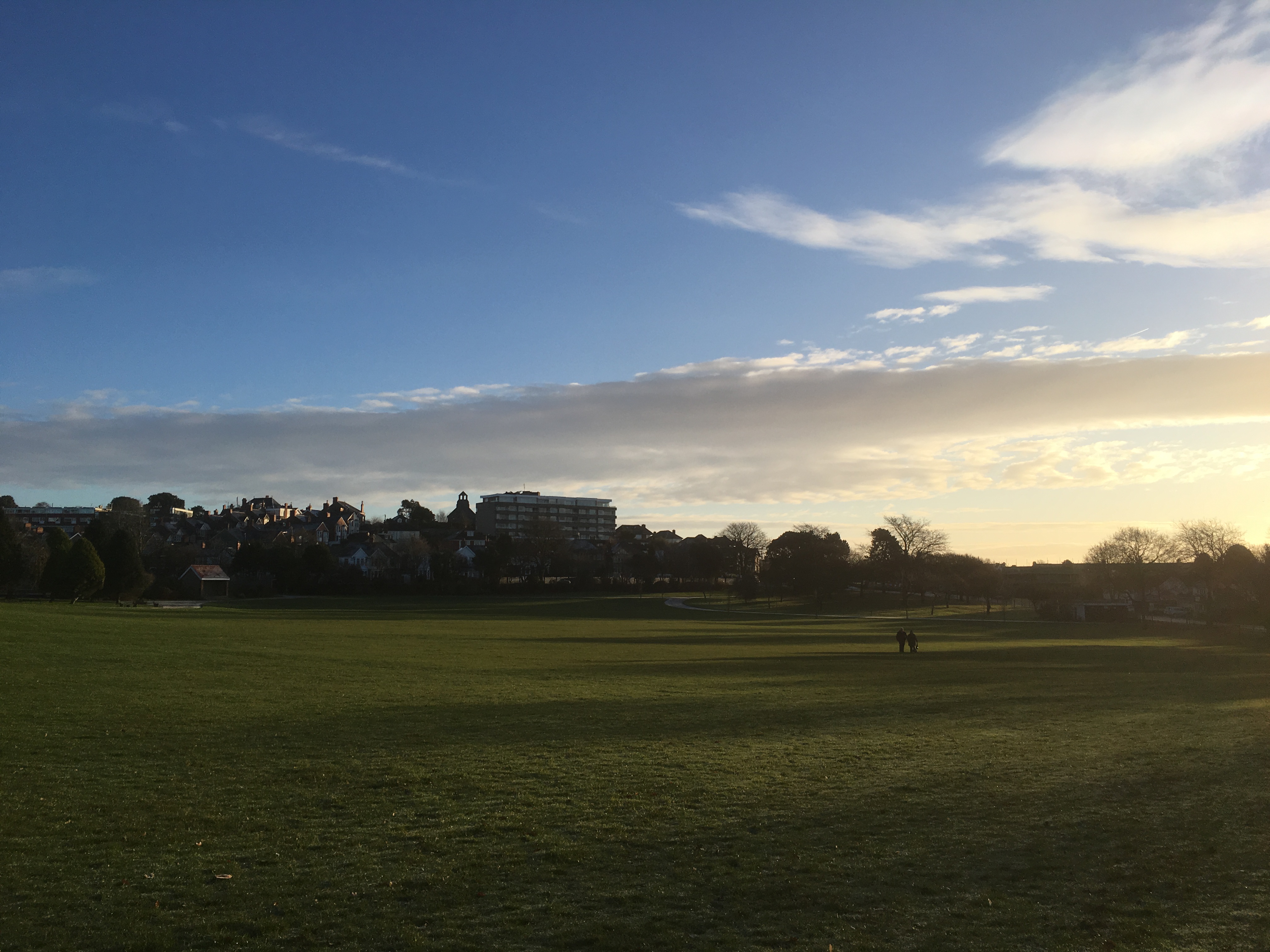The places that become you
Posted by Luke on 27th Aug 2020
I grew up in Barry, on the South Wales coast.
Thanks to the popular BBC comedy, 'Gavin and Stacey', you might have heard of it. Every year, hundreds (thousands?) of people pass through the town to visit scenes from the television series: Marco's cafe on Barry Island, Stacey's Mum's house on Trinity Street (which was around the corner from my primary school, Sant Baruc), the Colcot Arms and so on.
For that reason, I can no longer say that Barry is 'not particularly famous'!
But for most of my childhood, that's what Barry was: a not particularly notable town, in a corner of the UK called South Wales. Unless you knew someone there, you weren't likely to drop by.
I remember during my childhood that some people in nearby Cardiff, a small city undergoing 1990s regeneration and later a devolution-induced boom, would look down on Barry as a second class place, perhaps worthy of a visit to the Island's fairground once a decade.
That wasn't always the case, I'm sure. Like many seaside towns, Barry in the first half of the twentieth century and earlier was a different beast.
A short history of a normal town
In the 1880s, with the port of Cardiff unable to cope with the constant flow of coal coming down from the South Wales collieries, a group of colliery owners led by David Davies of Llandinam spied an opportunity to open a new port in the agricultural community of Barry, whose population was then only around 100. The nearby 'Barry Island' created a natural harbour and could be connected to the mainland.
The colliery owners formed the Barry Railway Company to transport the coal, and the first dock was completed by 1889. By the eve of the First World War, Barry was the largest coal exporting port in the world.
On the back of the massive growth in jobs, Barry developed as a town, with rows of brick terraced houses spreading from the docks in all directions.
Our family home, beginning in 1988, was in Romilly Road, in a terrace that had originally been built for railway workers and their families around 1910.
As the town grew, Barry Island with its beaches and fairground became an attractive weekend destination to people from across South Wales. From the 60s, it was home to a Butlins holiday camp, which eventually closed in the 1990s as foreign holidays became more popular and people lost interest in Barry.

Above: Whitmore Bay, Barry Island. I took this photo on a walk around the headland in December 2016. You can see the ferris wheel and fairground in the centre.
Barry Island's Woodham Brothers Scrap Yard was also notable in the second half of the twentieth century as a final resting place for railway steam engines awaiting scrappage.
Barry (and the Valleys) were eventually pushed out of the coal market as other countries developed their industrial capacities. Like most places which relied on the heavy industry of the industrial revolution, Barry lost jobs, people and perhaps a sense of purpose.
Notable to me
And so Barry became, from its humble beginnings as a collection of small villages, a "not particularly notable town, in a corner of the UK called South Wales."
But it was notable, to me.
My father, Tim, once told me that he was keen for my younger brother and me to have a 'sense of belonging' while growing up. I think he'd moved around a bit during his own childhood, and in contrast wanted us to have somewhere relatively permanent to call 'home'.
To sense that a place, a physical location in the world, was also a part of us. To possess those ephemeral 'roots'.
My brother and I were born in London, but we moved to South Wales when my father got a job working for the Western Mail in Cardiff in the late 1980s.
Partly because of his interest in languages, but also no doubt because of his motivation to build in us that sense of identity, my father took Welsh evening classes at Cardiff University, and gradually began passing on his knowledge of the language to his sons.
He insisted on speaking to us in Welsh at all times, and we therefore grew up bilingual and were able to attend local Welsh language schools. It was no trouble to us toddlers: children adapt.
It was ironic in some ways that my father saw the language as a way of nurturing our sense of belonging, given that barely 10% of the South Wales population were Welsh speakers! (There are much higher concentrations of Welsh speakers in the North and West of the country).
But my father was right: a language does connect you to a culture and a place. My brother and I are ever so grateful to his efforts to learn what some people wrote off as a 'dying language' - not so, thanks to the efforts of people like my father.
And so we had the language to connect us to Wales and its history, but we also had our spatial surroundings to connect us to Barry.
The places that become you
There was the local 'Romilly Park', where as a child I could play on the swings and where I took my first ever photo. I remember that camera in my hands, half-pressing the button and waiting for the green light.

Above: Romilly Park, taken on an early Sunday morning during a run around the park while visiting my parents in 2017.
In my teens after the turn of the century we went to the nearby Eisteddfod standing stones and filmed ourselves dressed as druids.
Hours spent on sunny days building doomed sand fortresses against the tide, on the quiet beach away from the crowds, around the corner from Whitmore Bay.
Buying a yoyo on Barry Island.
Running my first long distance race at Jenner Park, Barry Town FC's stadium (now Barry Town United). Think I finished one from last after one boy dropped out.
An ice cream at the old Knap lake, and looking out at South-West England from the pebble beach.
Passing again the arches of that beautiful viaduct in Porthkerry Park, the smell of a summer barbecue forever associated with that place.
It's these 'un-notable' places, so unknown to the wider population but so memorable to you personally, that I think really connect you to a location.
This 'Town Towels' project, in my mind, is about revisiting and uncovering some of those places. The special views and corners of countryside, town and city that are meaningful to people in this country.
The imagery in the corners of our mind that we can return to and realise are special to us in our own way, but are nonetheless shared with others.
Others with different backgrounds and beliefs to us - others with opposing views on the state of the country - but others with whom we share a sense of place.
My parents finally left Barry, after 31 years, in autumn 2019. They moved to live in the countryside of the Brecon Beacons.
We don't have a design for a Barry tea towel. Yet. I'll have to add that to the list.
